Nigeria has been known to produce sprinters who dominated the world stage during their era. Ironically, the country remains one of the most affected in terms of losing her home grown talents to other countries, or her inability to attract world-class athletes of Nigerian heritage in the Diaspora.
In 2014, five world-class athletes of Nigerian origin in Femi Ogunode (Qatar), James Dasaolu (Great Britain), Chijindu Ujah (Great Britain), Tiffany Porter (nee Ofili, Great Britain) and Kemi Adekoya (Bahrain) all did tremendously well for their countries.
A quick review of their performances in 2014 is summarized below:
1. FEMI OGUNODE
Ogunode kicked off his 2014 season with a 60m World Indoor Championships Bronze medal in March. At the IAAF Continental Cup in Marrakech, he finished third in the 100m/200m event for his adopted continent, Asia Pacific, before capping off his outstanding season by winning double GOLD in the 100m/200m (9.93s, 20.14s) and setting a new Personal Best (PB) at the Asian Games, breaking the Asian Games record in both events.
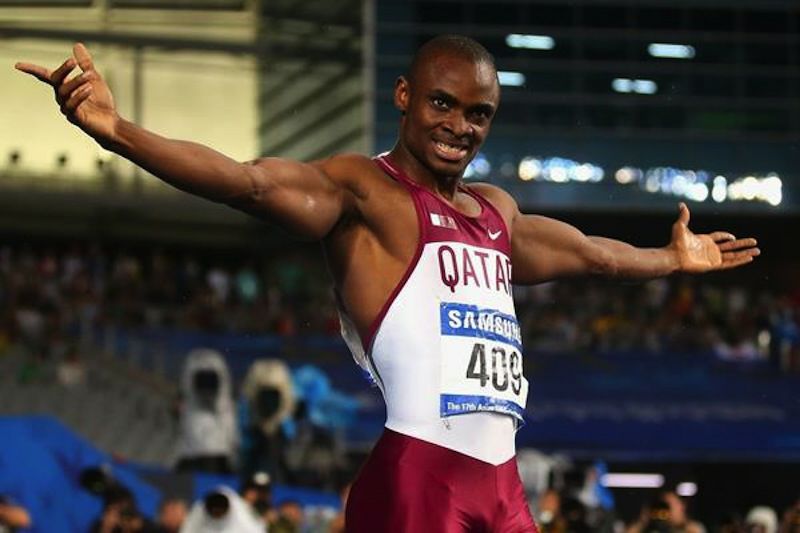
2. JAMES DASAOLU
From a PB of 10.75s in 2006, Dasaolu has made significant and steady improvement to become the 2014 European 100m Champion, an event which was last won by a Briton in 1998. He capped off his season by becoming the first British winner of the 100m at the Continental Cup since Linford Christie achieved the same feat in 2004. The European Champion won in 10.03s, just 0.1s from USA’s pre-event favorite Mike Rodgers and Femi Ogunode. Worthy of note is the fact that Dasaolu is the second fastest Briton of all time, after posting a stunning 9.91s at the British Championships in 2013.
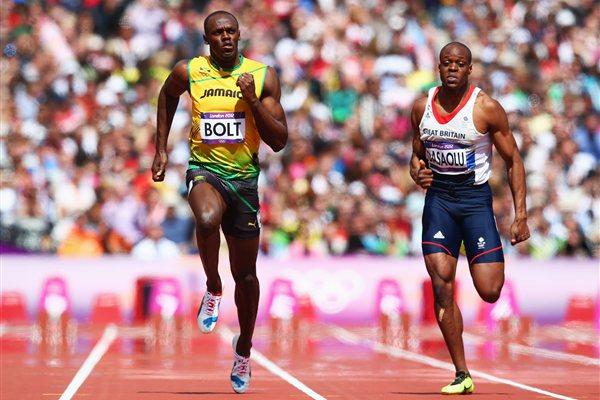
3. CHIJINDU UJAH
At just 20 years old, Ujah already has British athletics faithful salivating on the resurgence of British sprinting. In 2014, Ujah sprinted to prominence in his first season as a senior by clocking 9.96s in the 100m, thereby becoming the fifth British athlete to go under 10s, which moved him to 3rd place in the British all-time list. He is the youngest British athlete to break the 10s barrier. He is also the reigning European Juniors 100m Champion.
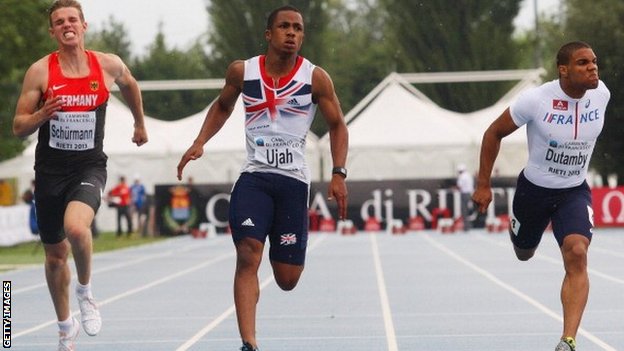
4. TIFFANY PORTER (nee OFILI)
Born in the US to a Nigerian father and British mother, Porter represented USA at junior level but switched allegiance to Great Britain in 2010, after failing to make the American team for the Beijing 2008 Olympics. She hit her first major GOLD by becoming the first British woman to win the 100m hurdles at the European Championships. At the Commonwealth Games, she won Silver behind Olympic Champion, Sally Pearson, then capped off her excellent season by setting a British record and PB of 12.51s at the Continental Cup in Marrakech, just behind USA’s Dawn Harper- Nelson.
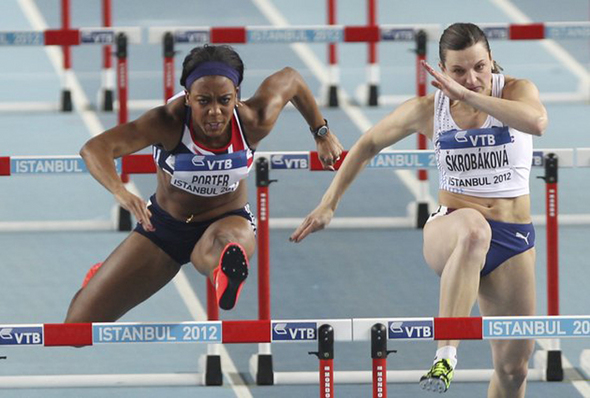
5. KEMI ADEKOYA
She marked her debut in the Diamond League circuit by defeating the entire elite 400m hurdles field in a surprise world lead of 54.59s, setting a Bahrainian National Record (NR) in her very first race for her adopted country. Adekoya came third for Asia-Pacific at the Continental Cup, before going on to win double GOLD in the 400m and 400m hurdles in a time of 51.59s and 55.77s respectively at the Asian Games. The new champion also ran the Games Records in the heats of both races (51.11s and 55.09s).
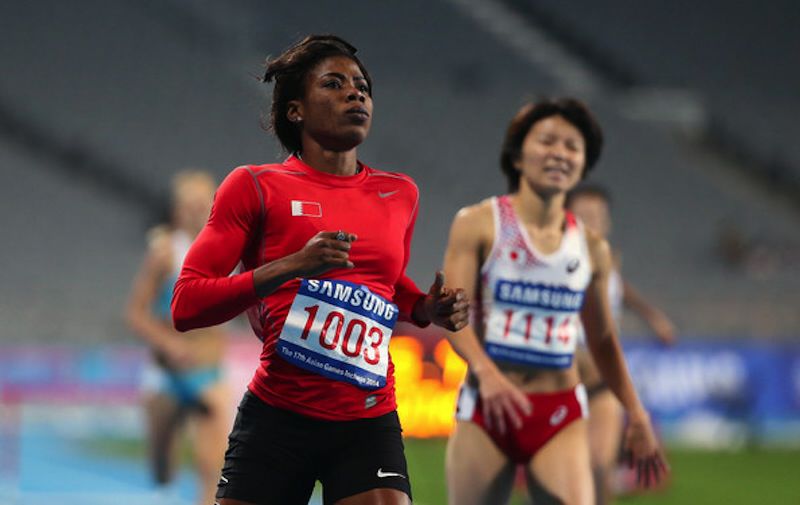
WHY HAS THE ‘SHIP SAILED’?
Greatness isn’t given, it is earned. In the past, Nigeria used to have two or more sprinters in the finals of global competitions. Now, we can only boast of one athlete meeting the ‘A’ qualifying standard of the IAAF World Championships. Ajayi Agbebaku, Innocent Egbunike, Olusoji Fasuba, and several others did not only dominate their events in Africa, but were also world class athletes.
Though the country can lay no claim to the success stories of the trio of James Dasaolu, Chijindu Ujah and Tiffany Porter despite their apparent Nigerian heritage, perhaps any of them may have been persuaded to run for Nigeria under the right conditions, and if the country could at least boast of having several world class athletes to her name. For instance, Porter switched nationality from her birth country (the US), to her motherland (the UK), implying that she could have opted to run for her father’s country (Nigeria) as well.
The dwindling fortune of Nigeria’s sprinters has now become a continental embarrassment as was seen at the IAAF Continental Cup where no Nigerian individual sprinter could get to the podium for the continent against the likes of Adekoya and Ogunode, whom Nigeria lost to Bahrain and Qatar respectively. Unfortunately, both athletes will not don the green and white colours in their lifetime, having found solace in countries that appreciate their talent and are willing to go the extra mile to ensure that they succeed.
Factors such as poor funding and lack of adequate training facilities amongst others, are responsible for this decline, which if not stalled, may trigger the defection of even more local athletes to other countries.
WHAT CAN BE DONE?
Until adequate funding is being injected into Track and Field to provide a systemic program where we can draw from the pool of talents within the country, the trend of losing our best talents or not attracting those with Nigerian descent, is bound to continue.
Great Britain started careful and proper investments since 2005 when it got the offer to host the 2012 Olympics. Ten years down the line, the country is already enjoying the benefits of their investment. Ujah, who is just 20 years old is running under 10 seconds in the 100m, so is faster than our top male athletes! One cannot help but wonder how many more talents of Nigerian origin are coming under the radar of other countries.
Coaches also have a part to play in ensuring that it doesn’t just boil down to knowing athletics, but developing the individual. We have to be more professional and improve their knowledge every day.
This year brings the World Championships in Beijing, and beyond that lies summer Olympics in Rio. Preparations have to commence now on developing younger athletes with indicators that they can get medals on the world stage. If there is a good support network, one can move not just the younger athletes, but also their senior counterparts forward.
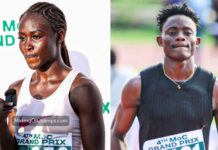
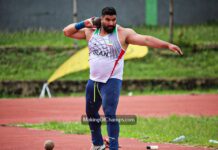
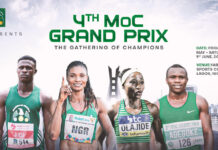


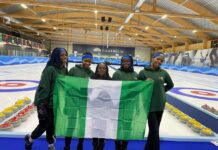
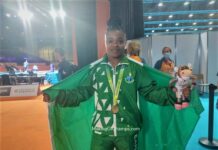
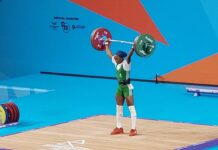

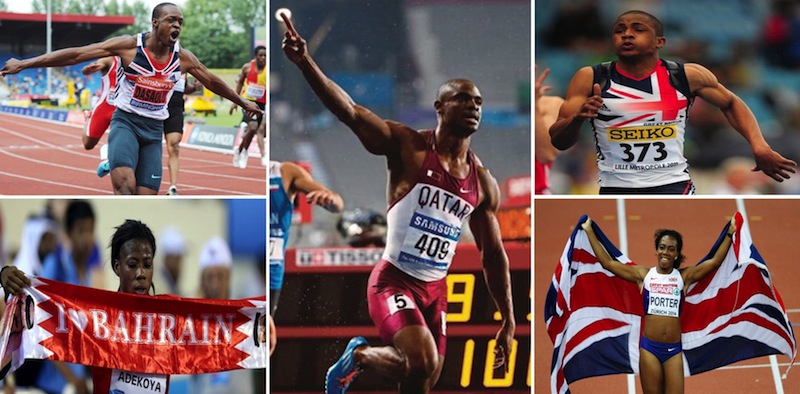
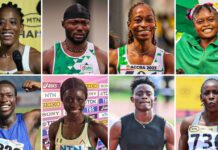
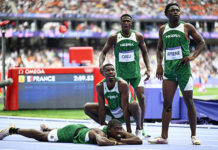
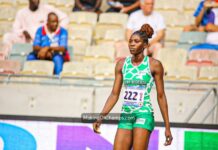





You wrote some thing about me that am rank 97 in world. Pls go and correct it am 72 not 97 pls
Hi Martins. We used the IAAF rankings for our story, which placed you on the 96th spot, not 97th as was published in our story. We have rectified it and apologise for the error. Here is the link to the IAAF Rankings we used. http://www.iaaf.org/records/toplists/hurdles/110-metres-hurdles/outdoor/men/senior/2014
Hope this clears the air. Thanks!
http://www.iaaf.org/records/toplists/sprints/60-metres/indoor/men/senior/2015
Check out number 78 on the 60m 2015 list. I have neither been supported nor encouraged in any form by my country Nigeria…I will not hesitate take drastic decisions for my own survival.
…I will not hesitate to take some drastic decisions for my survival.I am currently the fastest Male sprinter this year in indoors but i feel abandoned…One thing is for sure.”I will get there”.